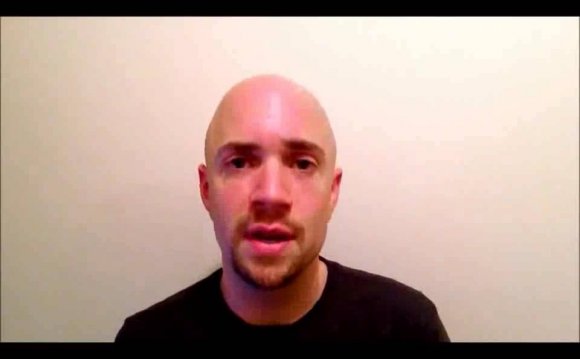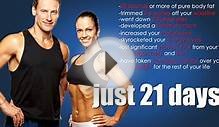
If you’re reading this, it means your primary goal is losing fat.
I don’t care if you want to lose 10lbs of fat or 100lbs. I don’t care if you’re male or female, young or old.
If you want to know how to lose fat as effectively as possible, and put together the absolute best diet plan to make it happen… then this is for you.
The Guidelines Of The Best Fat Loss Diet Plan
Here now is a recap of every major component that goes into creating the best fat loss diet plan possible…
Calories
- A caloric deficit is the #1 requirement for losing fat. In fact, it’s the ONLY real requirement for losing fat.
- Specifically, the ideal daily caloric deficit for both men and women is 20% below maintenance level per day.
- The ideal caloric deficit will cause you to lose weight at the ideal rate. For most people, that ideal weight loss rate is between 0.5-2 pounds per week. People with an above average amount of fat to lose can lose it at a rate of 2lbs (or more) per week. People with an average amount of fat to lose should it lose at a rate of 1-2lbs per week. People with a below average amount of fat to lose should lose it at a rate of 0.5-1lb per week.
- Weigh yourself at least once per week first thing in the morning on an empty stomach and keep track of your weight (or, weigh in every morning and take the weekly average). If it’s decreasing at the ideal rate, you’re perfect. If it isn’t, adjust your daily calorie intake up or down until it is.
Protein
- The ideal daily protein intake for men with the primary goal of losing fat (and getting the various benefits protein brings to the overall fat loss process) is 0.8-1.5 grams of protein per pound of body weight. For women with the primary goal of losing fat (and getting the various benefits protein brings to the overall fat loss process), it’s 0.8-1.2 grams of protein per pound of body weight.
- This protein intake should typically come mostly from high quality whole food sources (chicken, meat, fish, etc.) and if needed or preferred, protein powder.
Fat
- The ideal daily fat intake is between 20-30% of your total calorie intake, with an even 25% probably being pretty perfect in most cases.
- This fat intake should primarily come from monounsaturated and polyunsaturated sources (nuts, olive oil, fish/fish oil, etc.). Saturated fat should account for no more than 1/3 of your total fat intake, and trans fat should be avoided completely.
- A definite emphasis should be placed on getting a sufficient amount of your essential fatty acids, specifically the omega-3 (which is easiest to get by taking a fish oil supplement).
Carbs
- The ideal carb intake is simply whatever is left after an ideal protein and fat intake have been factored in.
- The majority of this carb intake should typically come from unprocessed nutrient-rich sources (rice, potatoes, vegetables, fruits, oats, whole grains, etc.). Highly refined junk should be limited to some extent.
Enjoyability And Sustainability
- Once you’ve set your total calorie and nutrient intake to their ideal levels, the key is putting your entire diet together in whatever way will make you most likely to stick to it consistently.
- Meal frequency and timing doesn’t matter (PRE/POST workout meals are the only exception). So if you’d rather eat 3 meals per day, go for it. If you’d rather eat 6 meals per day, go for it. If you’d rather eat early instead of late or late instead of early, do it. In the end, all that matters is what you eat and how much you eat… not when and how you eat it. Do whatever is most enjoyable, convenient and sustainable for you.
- Choose foods and adjust your diet based on your own personal preferences and needs. As long as you get your calorie and nutrient totals right for the day (and get them from mostly high quality sources as opposed to processed useless junk), everything else is just a minor detail that should be put together based on what’s best and most all around preferable for you.
- If you are the type of person who would benefit from using cheat meals and feel they will help you stick to your diet in the long term, then you should definitely make cheat meals a regularly scheduled part of your diet. Ideal use would be a maximum of 1-2 cheat meals (properly done) per week.
PRE & POST Workout Nutrition
- Surround your weight training workouts with meals that contain a good amount of protein and carbs.
- For your PRE workout meal, either consume a normal solid food meal 1-2 hours before your workout, or consume a fast, easily digested liquid meal/shake 0-30 minutes before your workout (and/or sipped throughout it).
- For your POST workout meal, either consume a normal solid food meal or a liquid meal/shake as soon after your workout as possible (ideally within the first 30 minutes).
Supplements
- NO supplement is required for losing fat. However, there are some that could definitely be beneficial and help improve some aspect of the fat loss process (and your overall health) to some degree.
- In no specific order, the main ones are: whey protein powder (and/or casein), fish oil, and a multivitamin.
Weight Training, Cardio and Exercise In General
As much as I hate to mention it, the honest truth is that exercise (weight training or cardio) is NOT required for fat loss to take place.
Really, it’s true.
The one and only thing you need to do to lose fat is get your diet plan right (specifically: create a caloric deficit). That’s it.
Of course, if your goal is to build muscle, get stronger or improve performance, then working out correctly is most definitely a requirement. But for fat loss alone, it’s completely optional.
The reason I hate bringing this up is because, despite how true it is, I absolutely positively recommend that you ignore it and work out anyway.
I know, I know. That probably sounds crazy.
I mean, if working out truly is optional for fat loss (as long as your diet plan is what it needs to be), then why the hell would you ever bother working out?
Well, there’s 4 really good reasons…
It will help with fat loss.
As you are probably aware, both cardio and weight training burn calories, and burning calories is another way of creating (or just adding to) your required caloric deficit.
So, some form of exercise (weight training is always my first recommendation) on top of The Best Fat Loss Diet Plan will serve to help your results come a little faster and easier.
It’s good for your overall health.
Fat loss aside, exercise of any form is quite beneficial for your overall health and function in general.
I know we’re all mostly concerned with losing fat and looking great naked, but the health benefits of both cardio and weight training shouldn’t be ignored.
It will improve the way your body looks and performs.
Besides losing fat, the single most effective way to improve the way your body looks is by building some muscle. Even just a small amount in the right places can completely transform your body for the better.
And honestly, there is a very big difference between losing fat and looking skinny, and losing fat and looking fit and lean. That difference maker is weight training.
Not to mention, if you want to be stronger, faster, more athletic and just in better overall shape, exercise is the best (and only) way to make that happen.
INTERESTING VIDEO












